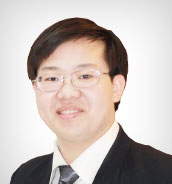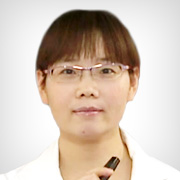╬ęéāīW(xu©”)ąŻķ_įO(sh©©)š■ų╬šn���ĪŻ
bŻ«īŻėą├¹į~╚ńć°├¹Īó╚╦├¹�����ĪóĢ°├¹ĪóĮM┐ŚÖC(j©®)śŗ(g©░u)Ą╚ū„ų„šZ�Ż¼ą╬╩Į╔Ž╝┤╩╣╩ŪÅ═(f©┤)öĄ(sh©┤)Ż¼ų^šZäė(d©░ng)į~ę▓ę¬ė├å╬öĄ(sh©┤)�Ż¼╚ńthe United Nations, the United StatesŻ¼the New York TimesĄ╚��ĪŻ
Lu XunĪ«s works sells well. ¶öčĖĄ─ų°ū„║▄Ģ│õN�ĪŻ
cŻ«ėąą®├¹į~╚ńĪŻarnings, thanks, goods, leavingsŻ©Üł?ji©Īn)³��Ż¼╩ŻėÓŻ®��Ż¼clothes, trousers, belongingsŻ©žö(c©ói)«a(ch©Żn)Ż®�Ż¼savings, scissorŻ¼Ą╚ū„ų„šZ���Ż¼Ųõų^šZäė(d©░ng)į~ų╗─▄ė├Å═(f©┤)öĄ(sh©┤)ą╬╩Į
The family were saved but the belongings were lost.
▀@ę╗╝ę╚╦½@Š╚���Ż¼Ą½ōp╩¦┴╦╦∙ėąžö(c©ói)«a(ch©Żn)ĪŻ
d. means , sheep , (leer, crossroad���ĪóĄ╚å╬Å═(f©┤)öĄ(sh©┤)═¼ą╬Ą─├¹į~ū„ų„šZ��Ż¼ų^šZäė(d©░ng)į~Ė∙ō■(j©┤)Ųõå╬Å═(f©┤)öĄ(sh©┤)Č°Č©
Each means has been tried to solve the problem��Ż¼but none is effective.
├┐ę╗ĘNĘĮĘ©Č╝įć▀^�Ż¼Ą½ø]ėąę╗éĆ(g©©)╩Ūėąą¦Ą─�����ĪŻ
ó▄║¼ėąą▐’ŚšZĄ─├¹į~ū„ų„šZ
aę╗ą®ė╔ā╔éĆ(g©©)ī”(du©¼)æ¬(y©®ng)▓┐ĘųĮM│╔ę╗¾wĄ─Å═(f©┤)öĄ(sh©┤)├¹į~����Ż¼╚ńtrousers , pants, glasses, scissgrsĄ╚ū„ų„šZŻ¼Ū░├µ╚¶¤oa pair of, a suit of, a set of, a series ofĄ╚▀@ŅÉå╬╬╗į~���Ż¼═©│Żū„Å═(f©┤)öĄ(sh©┤)ė├�Ż¼ų^šZäė(d©░ng)į~ū„Å═(f©┤)öĄ(sh©┤)�����ĪŻ╚¶Ä¦ėąå╬╬╗į~��Ż¼ätė╔å╬╬╗į~Ą─å╬Å═(f©┤)öĄ(sh©┤)øQČ©ų^šZäė(d©░ng)į~Ą─å╬Å═(f©┤)öĄ(sh©┤)ą╬╩Į���ĪŻ
My shoes are under the bedŻ«╬ęĄ─ą¼į┌┤▓Ž┬���ĪŻ
His black trousers are too longŻ«╦¹Ą──ŪŚl║┌čØūė╠½ķL┴╦���ĪŻ
Your glasses are on your noseŻ«─ŃĄ─č█ńRį┌▒Ūūė╔ŽĪŻ
Ą½╚¶▀@ŅÉ├¹į~┼ca pair▀Bė├Ģr(sh©¬)��Ż¼ų^šZäė(d©░ng)į~═∙═∙ė├å╬öĄ(sh©┤)���ĪŻ
This pair of shoes is made in BeijingŻ«▀@ļpą¼ūė╩Ū▒▒Š®ųŲįņĄ─����ĪŻ
There is a pair of glasses on your bedŻ«─ŃĄ─┤▓╔ŽėąĖ▒č█ńR�ĪŻ
b. a number ofĪ«ęŌ×ķ“įSČÓ”Ż¼ą▐’Ś┐╔öĄ(sh©┤)├¹į~Å═(f©┤)öĄ(sh©┤)Ģr(sh©¬)ų^šZę╗░Ńę▓ė├Å═(f©┤)öĄ(sh©┤)Ż║the number ofęŌ×ķ“……Ą─öĄ(sh©┤)─┐”����Ż¼ū„ų„šZĢr(sh©¬)����Ż¼ų^šZ•ų╗─▄ė├å╬öĄ(sh©┤)
A number of the other plants were found in America.
į┌├└ų▐▀Ć░l(f©Ī)¼F(xi©żn)┴╦įSČÓäeĄ─ų▓╬’ĪŻ
The number of people who travel by plane in China is larger than ever beforeŻ«
į┌ųąć°│╦’wÖC(j©®)┬├ąąĄ─╚╦öĄ(sh©┤)▒╚ęį═∙ČÓ┴╦�ĪŻ






